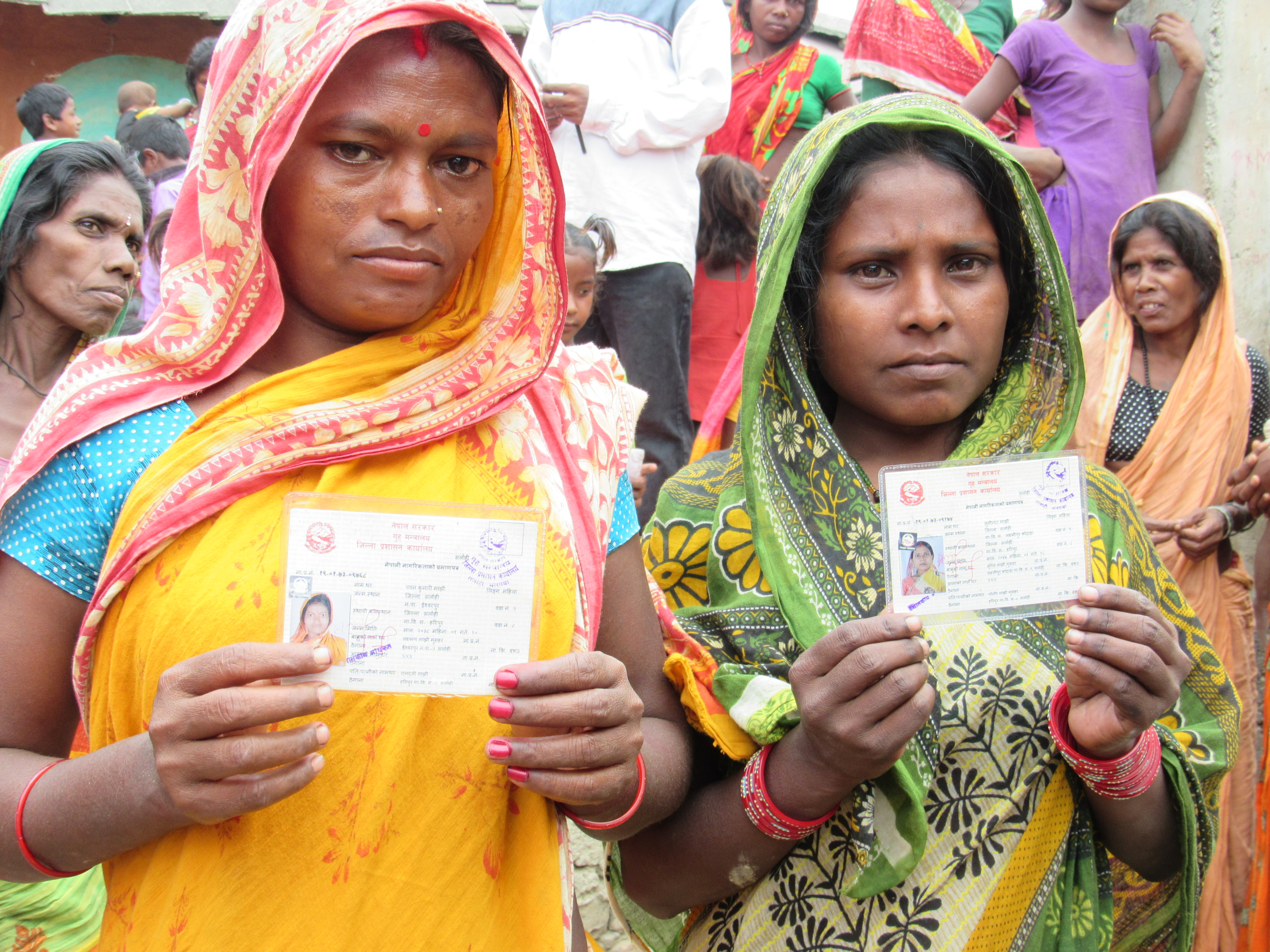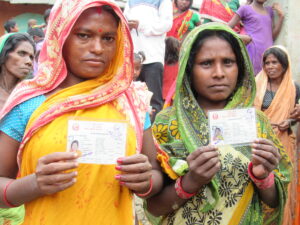
13 Sep HUMAN RIGHTS AND SOCIAL JUSTICE
SUS was established to works for the equality, justice, rights, and development of discriminated and marginalized people like Dalit, women, landless squatters and minority groups. Therefore, it particularly advocates to end discrimination based on caste and gender, enhance access to land and citizenship certificate, promote social justice and ensure effective participation of right holders in governance. SUS advocacy strategies aim to empower rights holders to claim their rights, and actually use their power to effectively participate in decision-making processes at all levels. It raises mass awareness against bad social norms and practices, and foster respect for social diversity. SUS capacity building initiatives impart advocacy knowledge and skills to local leaders and activists and enable enforcement agencies to work together fighting against social problems. SUS emphasizes evidence-based advocacy. It invests in issue-based knowledge production and disseminates knowledge to wider actors internally and externally. The efforts for alliance building and collaboration with stakeholders build solidity and accumulate power to influence policy and decisions. SUS also supports the struggle of rights holders and facilitates their advocacy for inclusive policies and equitable access to public services and justice.
Strategic Objective/outcome-2: Promote Human Rights and social justice of affected women, men, girls, and boys from marginalized communities, gender and sexual minority groups and children and young people potential to internal trafficking and abuses in workplaces
Sub-priorities:
- Reducing internal migration and anti-human trafficking
- Social Justice for vulnerable target groups and human rights violations
Outcome indicators:
- Risk and vulnerability of internal trafficking and migration of vulnerable children and young people reduced at the end 2027
- Improved policies and programs to promote enabling environment for children and young people for socio-economic, cultural, civil and political rights and empowerment
- Increase collective voices and actions by Dalits and non-Dalits community and CSOs at all level for combating caste, gender and identity discrimination
Major interventions:
- Internal Migration and anti-human trafficking
- Support vulnerable children and young people via Community support center (critical awareness and interaction forums, capacity building, linkage and advocacy for govt services)
- Support services e.g. vocational and technical skill development, educational scholarship for drop outs children and young people,
- Capacity building on Life skills, ESCR, Labor rights, etc.
- Networking of affected survivor children and young people
- Media campaign to reduce modern-day slavery
- Engagement with adult entertainment sector (AES) business owners for labor rights and decent work environment
- Rescue and reintegration of minors from AES
- Provide support services PSS counselling, legal support, referral services, health support
- Networking, and collaboration with CSOs, government authorities, and local governments
- Evidence-based research and strategic advocacy
- Social Justice and protection of human rights of vulnerable target groups
- Critical Awareness on Caste, gender, and identity based discrimination – via networking, awareness training to Dalit/Non Dalits community people and CSOs/CBOs
- Mainstreaming GESI with focus to inter-sectional groups
- Awareness and capacity building
- Networking and advocacy
- Mainstreaming GESI in all programs, SUS and its partners-CBOs, CSOs, community groups
- Ending Gender based violence (awareness, capacity building, networking, advocacy, safety and security of survivors)
- Campaigning and social movements for ESCR and legal rights e.g. on economic rights due to meter byazi (local illegal creditors) exploitation, freed bonded labor (haruwa, charwa), social rights e.g. child rights exploitation and child labor, child marriage, etc.
- Strengthening Civil society and network’s capacity development
- Strategic advocacy with govt and educational institutional at all levels on economic, social, cultural, civil and political rights
- Strengthening HRDs (capacity building, networking, and safety and security of HRDs)
- Story-telling on discrimination, suffering from and resistance in ESCR violations
- Legal support/aid for affected target groups from ESC, civil and political rights violations
- Capacity development and sensitization of government agencies, private sector actors and CSOs on social justice and human rights


